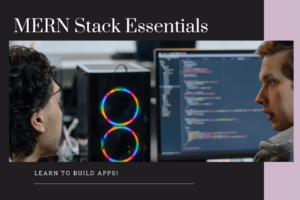
How to Prepare for a Data Science Interview: A Step-by-Step Guide
#1 Myinstitutes.com is one of the Best Educational Portal and Training Institutes in MYSORE, MANGALORE, and BANGALORE.
Data Science interviews are known for being challenging, but with the right preparation, you can approach them with confidence. This step-by-step guide will walk you through everything you need to know to excel in your data science interview, from understanding key concepts to answering technical and behavioural questions.
1. Understand the Interview Process
The data science interview process typically consists of multiple rounds. Each company may have slight variations, but most follow this general structure:
- Phone Screen: This initial round usually focuses on your resume, background, and general understanding of data science concepts. Be prepared to talk about your experience, projects, and technical skills.
- Technical Interview: This round includes coding challenges, algorithmic questions, and technical problems related to data manipulation, statistics, and machine learning.
- Case Study: Here, you may be given a real-world data problem to analyze and present your findings. This assesses both your technical and business acumen.
- Behavioral Interview: This round evaluates your soft skills, including how you work in a team, manage projects, and handle difficult situations.
Each of these stages tests different aspects of your skill set, so being well-rounded is essential.
2. Review Core Data Science Concepts
Data Science is a broad field, encompassing multiple disciplines. During your interview, you’ll be asked about several key topics:
- Statistics & Probability: Expect questions on descriptive and inferential statistics, probability distributions, hypothesis testing, and A/B testing. Know how to calculate confidence intervals, p-values, and understand common statistical tests.
- Data Wrangling & Cleaning: You’ll likely face questions about handling messy data, missing values, and outliers. Be familiar with Python (Pandas) or R for cleaning and transforming data.
- Machine Learning: This is a core topic. You should understand different algorithms (e.g., linear regression, decision trees, random forests, SVM, clustering algorithms, etc.), their advantages, limitations, and common use cases. Be prepared to explain concepts like overfitting, regularization, and bias-variance tradeoff.
- SQL: Proficiency in SQL is expected. Practice writing complex queries involving joins, groupings, window functions, and subqueries.
- Programming Skills: Python and R are the most commonly used languages in data science. Brush up on writing clean, efficient code, solving algorithmic challenges, and performing data analysis with libraries like NumPy, Pandas, and Scikit-learn.
- Data Visualization: Be ready to explain how to visualize data using tools like Matplotlib, Seaborn, or Tableau. You may be asked to interpret charts and graphs to draw meaningful insights.
- Big Data & Cloud Technologies: Familiarity with tools like Hadoop, Spark, and cloud platforms (AWS, GCP, Azure) can be a big plus, especially if the job involves working with large datasets.
3. Practice Technical Problems
Data science interviews often include live coding challenges or take-home assignments. These tests assess your ability to solve problems under pressure. Here’s how to practice:
- Leetcode and HackerRank: These platforms offer a wealth of data structures and algorithmic challenges. Focus on problems involving arrays, strings, trees, and dynamic programming. Review common sorting and search algorithms.
- Kaggle: Participate in Kaggle competitions to practice real-world data analysis and machine learning tasks. This will give you hands-on experience with large datasets.
- Mock Interviews: Conduct mock interviews with a friend or use platforms like Pramp. Simulating the interview environment helps improve your ability to explain solutions under pressure.
4. Prepare for the Case Study
Case studies are designed to assess how you approach data problems, structure your analysis, and derive business insights. To prepare:
- Practice Frameworks: Familiarize yourself with problem-solving frameworks like CRISP-DM (Cross Industry Standard Process for Data Mining). This gives you a structured approach to solving case studies.
- Focus on Communication: While technical ability is important, your ability to clearly communicate findings and insights to non-technical stakeholders is just as crucial. Practice explaining technical concepts in simple terms.
- Explore Past Case Studies: You can find examples of common data science case studies online. Try solving problems related to marketing analytics, customer segmentation, fraud detection, or recommendation systems.
5. Review Behavioral Questions
Technical expertise alone won’t guarantee success. Behavioral interviews assess your fit for the company’s culture and team dynamics. Here are some common questions to expect:
- Tell me about a challenging project and how you approached it.
- Describe a time when you had to work under a tight deadline.
- How do you handle feedback or criticism of your work?
- How do you prioritize tasks when working on multiple projects?
Prepare answers using the STAR method (Situation, Task, Action, Result) to keep your responses structured and concise. Highlight your teamwork, problem-solving skills, and leadership abilities.
6. Know the Company
Tailor your preparation to the company and role. Research the company’s industry, data challenges, and recent developments. Read the job description carefully and understand the key skills they’re looking for. If possible, reach out to current or former employees to gain insights into the company’s interview process.
7. Be Ready for Whiteboard Challenges
Many data science interviews include whiteboard exercises where you’re asked to solve coding or data-related problems without a computer. Practice solving problems on paper or a whiteboard to get comfortable explaining your thought process aloud.
8. Prepare Questions for the Interviewers
At the end of the interview, you’ll likely be asked if you have any questions. Use this opportunity to learn more about the team, the company’s data infrastructure, and expectations for the role. Good questions demonstrate your genuine interest and can help you determine if the company is the right fit for you.
Conclusion
Preparing for a Data Science interview takes time and practice. By following this step-by-step guide, you can build a solid foundation in the core technical and analytical skills required, as well as improve your interview performance. Remember to review key concepts, practice problem-solving, and refine your communication skills to make a lasting impression on your interviewers. With the right preparation, you’ll be well-equipped to land your dream data science job!



